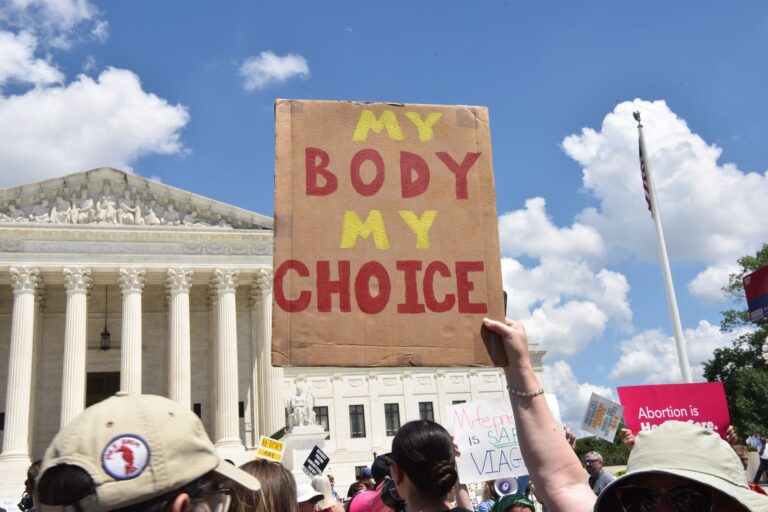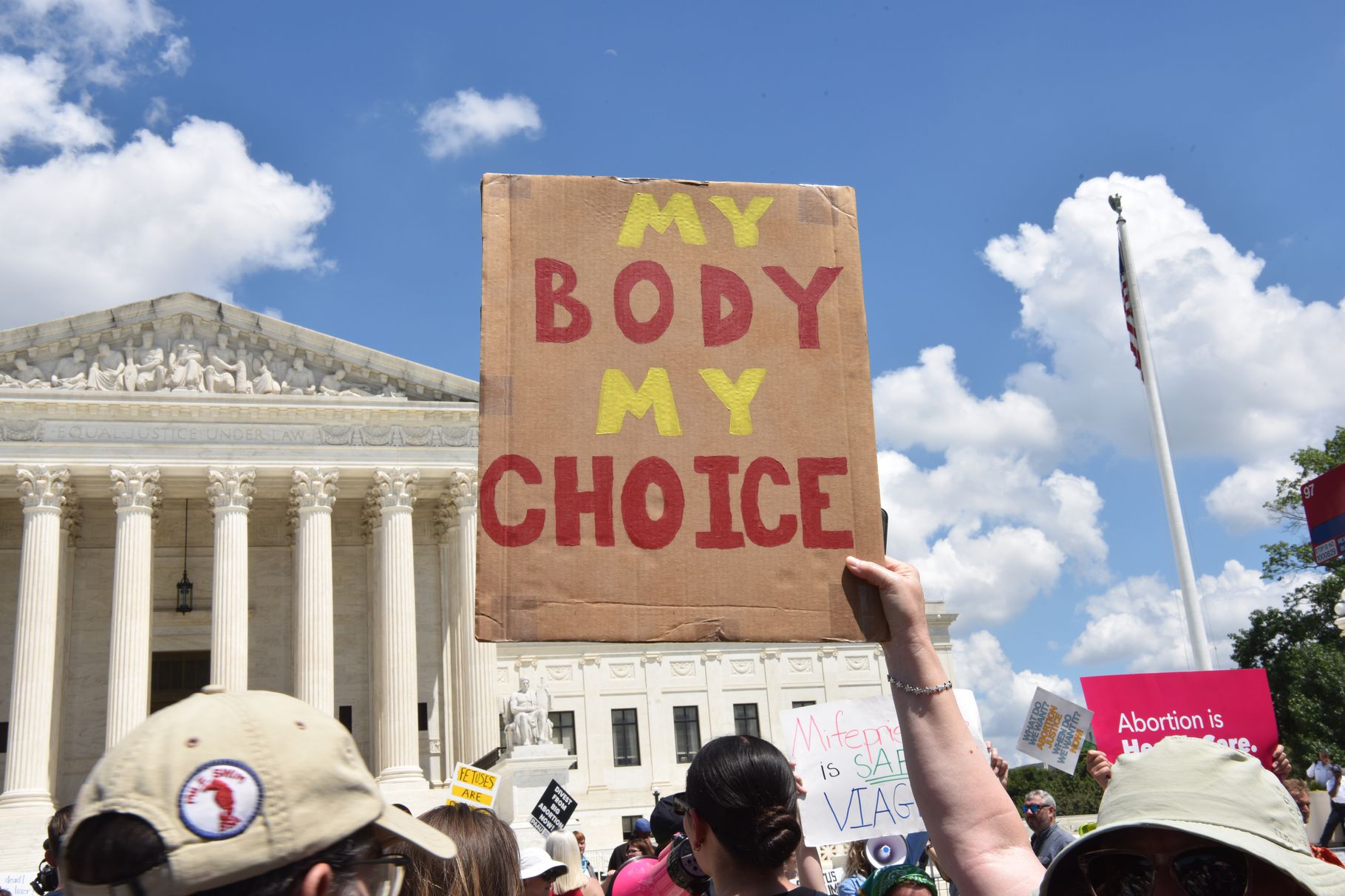Affirmative action is dead. Now conservative lawyers are going after Black moms and trans people
Stay Vigilant
For Briana Jones, a young Black mother in San Francisco, a city program called the Abundant Birth Project has been a godsend.
Designed to counter the “obstetric racism” that researchers say leads a disproportionate number of African American mothers to die from childbirth, the project has provided 150 pregnant Black and Pacific Islander San Franciscans a $1,000 monthly stipend.
The money enabled Jones, 20, to pay for gas to drive to prenatal clinics, buy fresh fruits and vegetables for her toddler son and herself and remain healthy as she prepared for the birth of her second child last year.
But the future of the Abundant Birth Project is clouded by a lawsuitalleging that the program, the first of its kind in the nation, illegally discriminates by giving the stipend only to people of a specific race. The lawsuit also targets San Francisco guaranteed-income programs serving artists, transgender people and Black young adults.
The litigation is part of a growing national effort by conservative groups to eliminate racial preferences in a range of institutions after a U.S. Supreme Court ruling that found race-conscious admissions to colleges and universities to be unconstitutional.
Read the rest on LA Times
Texas woman has to ask judge for permission to get a medically necessary abortion
Less Of This

A Texas woman is asking a judge for permission to terminate her pregnancy due to a severe fetal anomaly, challenging Texas’ strict abortion laws that prohibit the procedure in most cases—a first-of-its-kind case since the Supreme Court allowed states to ban abortion last year.
Kate Cox, a 31-year-old woman with two children and a 20-week pregnancy, is suing Texas to request she be allowed an abortion after doctors told her “continuing the pregnancy puts her at high risk for severe complications threatening her life and future fertility,” according to the lawsuit, filed in district court in Travis County, Texas.
Cox was told her baby has trisomy 18, which means “her pregnancy may not survive to birth, and, if it does, her baby would be stillborn or survive for only minutes, hours, or days,” the lawsuit said.
Read the rest on Forbes
Is there is a right to medically necessary abortions? SCOTUS will decide
Speaking Of...

A federal law, known as the Emergency Medical Treatment and Labor Act (EMTALA), requires hospitals that accept Medicare funds to provide “such treatment as may be required to stabilize the medical condition” of “any individual” who arrives at the hospital’s ER with an “emergency medical condition.”
The language unambiguously requires these hospitals to provide an abortion to such patients when an abortion is the appropriate medical treatment to stabilize their emergency medical condition. And a federal court in Idaho held more than a year ago that this statute requires hospitals to provide medically necessary abortions even if the procedure would ordinarily be banned under state law.
Now we’re about to find out whether the Supreme Court will follow the text of EMTALA, in a pair of cases known as Idaho v. United States and Moyle v. United States. (Both cases present similar issues, but the Idaho case was brought to the Supreme Court by Idaho Attorney General Raúl Labrador, a Republican, while the Moyle case was brought by the state’s GOP-controlled legislature.)
Read the rest on Vox
Sandra Day O’Connor and empathetic jurisprudence
Perspective

Aziz Huq teaches law at the University of Chicago and is the author of The Collapse of Constitutional Remedies.
For much of her tenure, the late Justice Sandra Day O’Connor was the most important vote on the Supreme Court.
Throughout the 1990s and 2000s, she voted with the majority in more closely decided cases than any other judge on the bench. The first woman to be appointed to the Supreme Court — it took only 190 years after the tribunal first docketed a case in 1791 — was in effect also the most influential justice on the court, because she stood at its ideological center. Her run as the swing vote, particularly from 1999 to 2005, was longer than any other post-war justice — and came to an end only because she chose to retire to care for her ailing husband.
Read the rest on Politico










